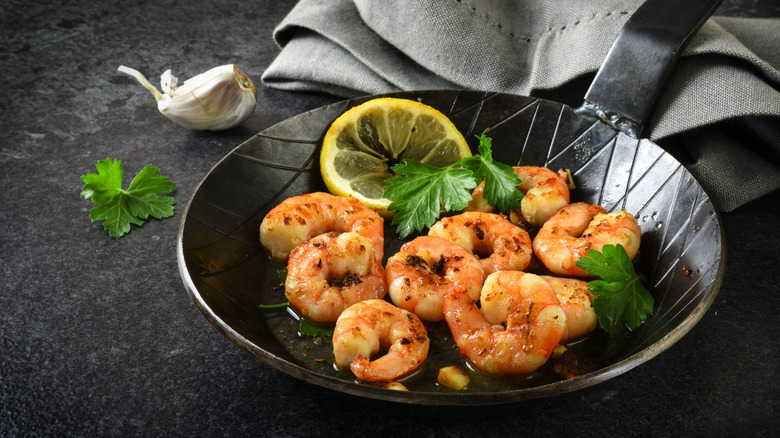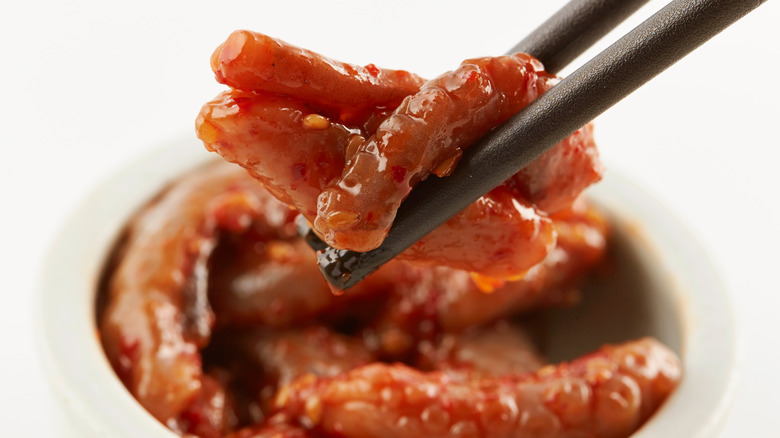The Timing Rule That Will Make Or Break Marinated Shrimp
If you know a thing or two about cooking meats, you know that the amount of prep work put in beforehand makes or breaks the results. Depending on the cut you're working with, trimming fat and cutting into portions is necessary, and tenderizing, or breaking down the connective tissue, is non-negotiable. There are a few different methods to properly tenderize, such as pounding protein with a mallet, cooking it low and slow, and the most popular: marinating. However, while the first two improve the texture, marinating additionally infuses your meat with the ultimate flavor.
Professional chefs harp on the importance of marinades, as the more layers of flavor you create, the more breathtaking each bite will be. The formula for a good marinade is essentially three parts oil and one part acid, with the addition of any other liquids and seasonings you prefer. Different types of protein have their own preference when it comes to the length of time they should soak in a marinade so that maximum flavor is added without turning the meat tough. Beef can marinate for up to 24 hours, lamb hits it's maximum at eight hours, pork for no more than four hours, chicken for up to two hours, and most shockingly of all, seafood should not marinate for longer than 30 minutes. While this pertains to all seafood, it's important to apply this rule to shrimp as it's often pre-seasoned or marinated.
No more than 30 minutes
Because marinades often have an acidic component, such as citrus juices, vinegars, or even wine, it's best to expose shrimp to the marinade for no longer than 30 minutes due to the risk of accidental cooking. If shrimp is slightly cooked before hitting the heat, it can then really overcook, resulting in a shriveled-up, tough texture. Furthermore, the longer you marinate shrimp, the acid can transform the texture of the seafood to mush. If you find yourself in a rare case where your marinade does not have much acid present, you can extend your marinade time to one hour.
Shrimp and acid react so strongly to one another because when exposed, the proteins in the shrimp begin to denature. This same reaction occurs during the cooking process when a food is exposed to heat. This is why ceviche is safe to eat, as it has already been cooked by the acidic lime juice in the dish.
The big takeaway is to always have a timer set the next time you're marinating shrimp. But the best part is that you don't have to wait hours for the flavor to infuse like you would with other meats.

